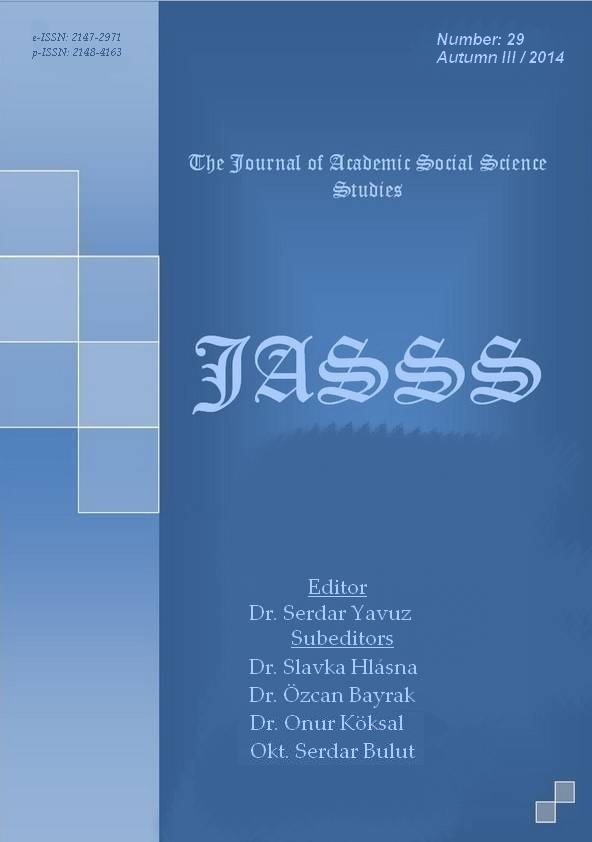Author :
Abstract
Göreve yeni başlayan aday öğretmenler kişisel, sosyal ve mesleki alanlarda çeşitli sorunlarla karşılaşmakta ve bu sorunların çözümünde dış desteğe ihtiyaç duymaktadırlar. Bu araştırmanın amacı; aday öğretmenlerin adaylık eğitimleri süresince kişisel, mesleki ve sosyal ihtiyaçlarına cevap vermede kullanılabilecek bir mentorluk uygulamasının nasıl olması gerektiğinin belirlenmesidir. Nitel araştırma tekniklerinin kullanıldığı araştırma olgubilim deseninde tasarlanmıştır. Araştırmanın verileri aday öğretmenlere yönelik mentorluk programı üzerine Gaziantep’de düzenlenen bir çalıştayda odak grup görüşmesi yöntemiyle toplanmıştır. Araştırma okul yöneticileri, deneyimli öğretmenler, aday öğretmenler, öğretim üyeleri ve öğretim elemanlarından oluşan toplam 45 katılımcı ile gerçekleştirilmiştir. Araştırma verileri içerik analizi yöntemi ile çözümlenmiştir. İçerik analizi sürecinde kodlamalar; tema, alt tema ve kavram olmak üzere üç düzeyde yapılmıştır. Araştırmanın bulgularına göre; mentorluk uygulaması aday öğretmenler arasında paylaşımı artırma ve aday öğretmenin mesleğe bakış açısını değiştirme yönünde fayda sağlayabilecektir. Aday öğretmenlerin mentorlerinde bulunması gereken başlıca özellikler; öğretmenlik mesleğinde başarılı olma ve güven verici olma olarak belirlenmiştir. Mentor seçiminin ise, aday öğretmenlerin ihtiyaçları doğrultusunda gerçekleştirilmesi uygun bulunmaktadır. Mentor ve aday öğretmenler arasındaki görüşmelerin birebir ve toplu olarak yapılması tercih edilmektedir. Araştırmanın sonuçlarına dayalı olarak; aday öğretmenlerin adaylık eğitimleri süresince çeşitli ihtiyaçlarına göre farklılaştırılan bir mentorluk programının uygulanması önerilmektedir. Programın işlevselliğini sağlayabilmek için, mentor ve aday öğretmenlerin çalışma koşullarında gerekli düzenlemelerin yapılması gerekmektedir.
Keywords
Abstract
Novice teachers starting working recently encounter personal, social and professional problems and need the external support to solve these problems. The aim of this study is to determine that how a mentorship program which is needed to response to novice teachers’ personal, professional and social needs during their training period should be designed. Phenomenology was used as research design in the study in which qualitative research methods were used. The findings of the study were collected through focus group interview method in a workshop on mentorship program for novice teacher which was held in Gaziantep. The study was conducted with 45 participants who consisted of school administrators, experienced teachers, novice teachers, lecturers and instructors. Data of the study were analyzed by using content analysis method and were coded under three levels as themes, sub-theme and codes. According to the findings of the study, mentorship program may provide benefits through improving sharing among novice teachers and changing novice teachers’ point of views for teaching profession. The primary characteristics which novice teachers’ mentors should have were determined as being successful in teaching profession and giving reassurance. Choosing mentors according to novice teachers’ needs is deemed suitable. The meetings between mentor and novice teachers were preferred both as one-to-one meeting and as collective meeting. Based on the results, a mentorship program differentiated according to different needs of novice teachers is suggested to carry out during training period of novice teachers. In order to provide functionality of the program, necessary arrangements should be made about working conditions of mentors and novice teachers.





